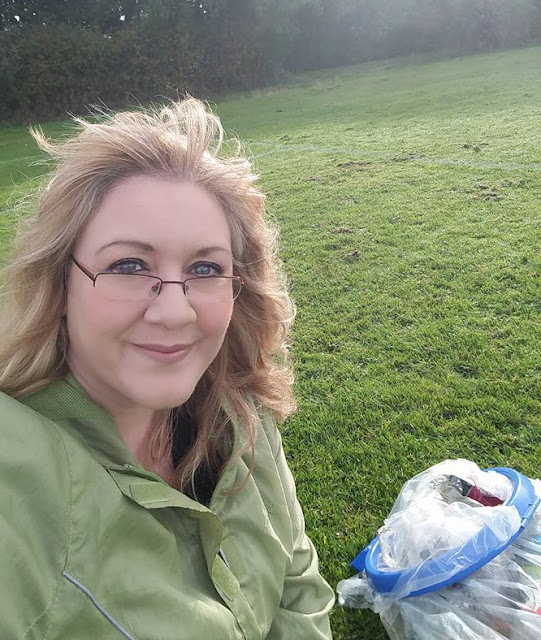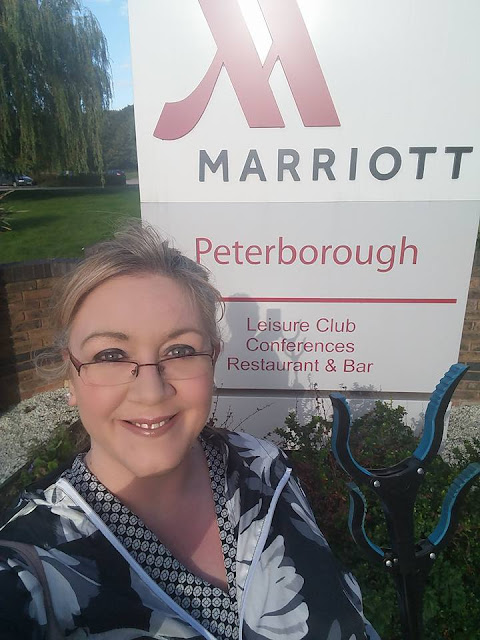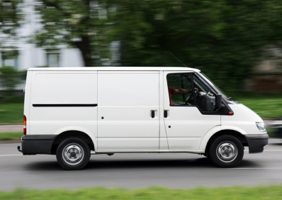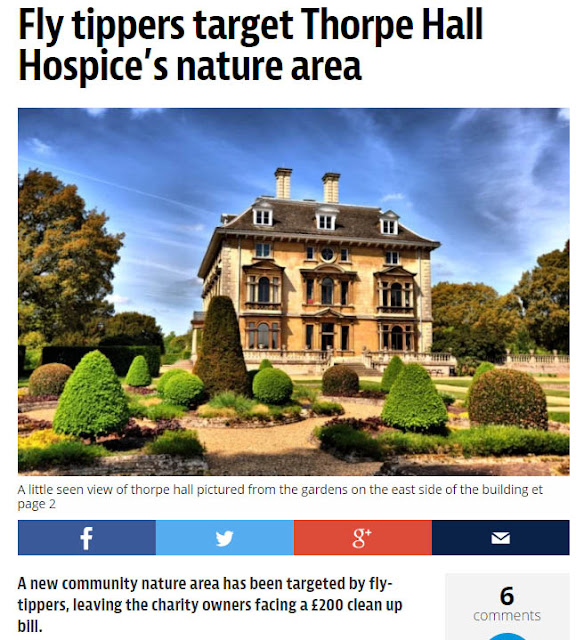 |
| If your mini motorbike doesn't have a light you're invisible |
Everyone saw an accident coming.
Everyone, except the lad on the bike and the poor driver whose car unavoidably hit him.
Just before 9pm on Thursday night (1st December 2016), a lady driving a Chevrolet Spark along London Road in Fletton Hempstead, Peterborough collided with a man in his 20s who was riding a mini motorbike. The biker wasn't wearing a helmet, there were no lights on his bike and, according to some unverified witness accounts that I read on social media, he jumped a red traffic light. The lady driving the car had no opportunity to take evasive action and the motorcycle and its rider ended their journey under that car. Our treasured MAGPAS air ambulance took the young man to hospital and it is reported that he has sustained 'life-changing injuries' including a broken pelvis. The driver of the car is, mercifully, unharmed.
The motorcyclist (and his friends and family) have learned a very hard lesson in the worst way possible. These bikes are not road legal for a reason. Even if they were, riding without a helmet is foolhardy. Riding without lights could kill someone. If you ride in the dark on public roads without lights on your bike you're invisible. No matter how carefully you think you're riding, if you cannot be seen then you're putting everyone in range of you at risk of great harm.
Yesterday, I gave an interview to the BBC Radio Cambs Breakfast Show expressing my concern about these mini motorbikes. Although the request for an interview was triggered by this incident, I have long voiced concerns about anti-social behaviour involving these bikes in many areas of Peterborough, including Dogsthorpe, Werrington and Orton.
Many residents of Orton have spoken to me about their anxieties regarding these bikes and the aggressive and anti-social attitude of the young people who ride them on the pavement, often narrowly missing pedestrians and certainly terrorising them.
Where Are The Police?
Residents also complain very bitterly that the police rarely respond to their reports about the mini motorbikes, despite it supposedly being a priority for police in Orton. Calls to 101 are frequently dismissed and if they attend at all, the police tend to arrive long after the rider has left the area.
Evidence of the problem is difficult to capture as the bikes travel so fast, with no licence plates to identify them, and the riders usually cover their faces with scarves to hide their identity.
Unsurprisingly, this has led some residents to describe parts of Orton as 'lawless', with many believing that neither the police nor the council cares about them.
What Should Be Done?
Education
If you're riding a bike you and your bike should always be safe, road legal and visible. Venturing out without lights on your bike at any time of day is risky and at night it is extremely dangerous. 'Life changing injuries' generally means 'will never walk again'. This is a terrible life sentence for a person in their 20s. Put lights on your bike, even if you don't agree that you need them. They will one day save your life and probably someone else's life too.
Policing
While some riders mean no harm, a considerable number of mini motorbike riders in Orton deliberately ride anti-socially, terrorising families, older people and pets. Putting people's lives at risk. Where those riders are concerned the police must intervene.
On 5 June 2016, Community Inspector Kate Firman of Safer Peterborough Partnership wrote in the Peterborough Telegraph about seizing bikes and issuing warnings to anti-social riders, and yet the problem seems to be worse than ever. I don't know whether the 101 operators are failing to handle the calls correctly (we know this happens sometimes when 'drifting' is reported) or whether the police are simply overwhelmed. However, it's very clear that residents feel a more visible police presence in the community and a faster response when crimes involving mini motorbikes occur would make a difference.
Somewhere to go
Peterborough is a property paradox. We have a desperate housing shortage (depending on whose 'facts' you choose to believe). At the same time, our newer housing estates are cramped. Planning that probably made very good sense on paper has led to narrow streets and areas of very dense housing. People in some areas feel that they are living on top of each other. And as new estates are built, where is the infrastructure needed to create communities? Is it any wonder that young people are using residential streets for recreation? If you are interested in mini motorbikes, where can you go in Orton to ride them safely and legally?
If you listen to the BBC Radio Cambs interview on the link above, you'll also hear from Wayne Arbon of the Gauntlet Auto Project. This business operating in Ramsey provides a place for mini motorbike enthusiasts to ride safely and teaches them how to maintain their bikes to keep them in good working order. Wouldn't it be great if we had such a facility in Peterborough?
What do you think is the answer the problems caused by young people riding mini motorbikes illegally and unsafely in Orton?
UPDATE: Read about my visit to the Gauntlet Auto Project in Ramsey where they are giving young people the opportunity to learn how to ride mini motorbikes safely and responsibly
Audio transcript: Dotty: Now the use of mini motorbikes in Peterborough has reached epidemic proportions, that’s according to a member of the city’s Green Party. Julie Howell says people riding them without lights and helmets are a hazard to residents as well as themselves. Last night in the city, a rider on a mini motorbike was reported to have sustained life-changing injuries after a collision with a car on London Road. Julie Howell joins me now. Good morning. I mean epidemic proportions Julie, what do you really mean by that?
Julie: Good morning, Dotty. Well the first thing that I’d
like to say is how terribly sorry I am for everyone involved in that accident
on Thursday, particularly the driver of the car. It sounds absolutely horrific.
Now, we call this epidemic proportions because we have been complaining about
this for over two years now. It’s a problem in Werrington, in Dogsthorpe, in Orton,
various places across Peterborough. We’ve told the police time and time again
we’ve got a real problem with people driving these off-road bikes, these
illegal bikes. They’re not wearing helmets, well, that’s their risk, isn’t it?
But they’ve got no lights on their bikes and this is a huge risk to everybody.
Dotty: And you said that you feel particularly sorry
following this accident on Thursday night for the person who was driving the
car that was involved. I mean it was the rider of the motorbike that has
suffered such serious injuries.
Julie: And it sounds like it was a miracle the person behind
the wheel of the car wasn’t injured or indeed any pedestrians passing by
because I believe this was round about 9pm, a very busy time. I know that
location well. It’s quite a built-up residential area and if you’re riding a
bike with no lights on then you are responsible for any accident that happens, absolutely
right. I’m sorry someone’s hurt themselves but this was bound to happen if you
ride in the dark with no lights on.
Dotty: So what really is the problem, especially if these
kids are, you know, just knocking about, if they’re just having a bit of fun, I
mean, is it really a big deal?
Julie: They’re not just knocking about though. I’ve spoken
to many residents about this over the weekend and certainly what we find in
Orton is that there’s a lot of very anti-social behaviour there with these
bikes. The kids who are riding the bikes, I say kids but it’s also young people
in their 20s, are riding them with their faces masked by scarves so they know
they’re doing wrong and they don’t want to be identified and they’re driving
along pavements, they’re putting children at risk. It’s something we’ve raised
with the police many, many times and it’s just a matter of time before a
pedestrian is really badly injured or killed.
Dotty: Yeah, I mean in the last six months we’ve spoken to
you Julie about concerns over fly tipping, over drifting and now mini
motorbikes. You say you’ve complained about all of these things to the relevant
authorities for months at a time. Do you feel that Peterborough is being
effectively policed?
Julie: Some parts of it you have to wonder, don’t you? I don’t
think this is entirely a policing issue. Clearly, we need to tell our young
people to put lights on their bikes. That’s really important. And I know that
some residents feel, as I do, that we need some place for people to be.
Peterborough’s becoming so built up with new housing, it doesn’t have great
transport infrastructure, and people will always as they have since motorbikes
were invented, wanted to muck about on them. So they need somewhere safe to be
able to do that. But for years residents have been complaining to police about
this sort of thing and they’re feeling terrorised now by these young people and
I doubt hearing about this accident on Thursday is going to make any of the
residents feel any better about it. Where are the police? Where’s the presence?
Where are the police telling these riders if you don’t have lights on your bike
it’s not just your own life you’re putting at risk it’s the life of anybody who
is unfortunate enough to get in your way.
Dotty: What do
you think should be done about this?
Julie: Education about how important lights are. I can’t
believe that we’re saying this. Isn’t it obvious? If you choose not to wear a
helmet it’s on you. If you choose not to have lights on your bike that could
affect all of us. And somewhere for people to be so that they can do this and
they’re not doing it out on our streets.
Dotty: Okay Julie, thank you very much. Julie Howell there
from Peterborough Green Party, concerned about the number of mini motorbikes
being ridden illegally around Peterborough.






























